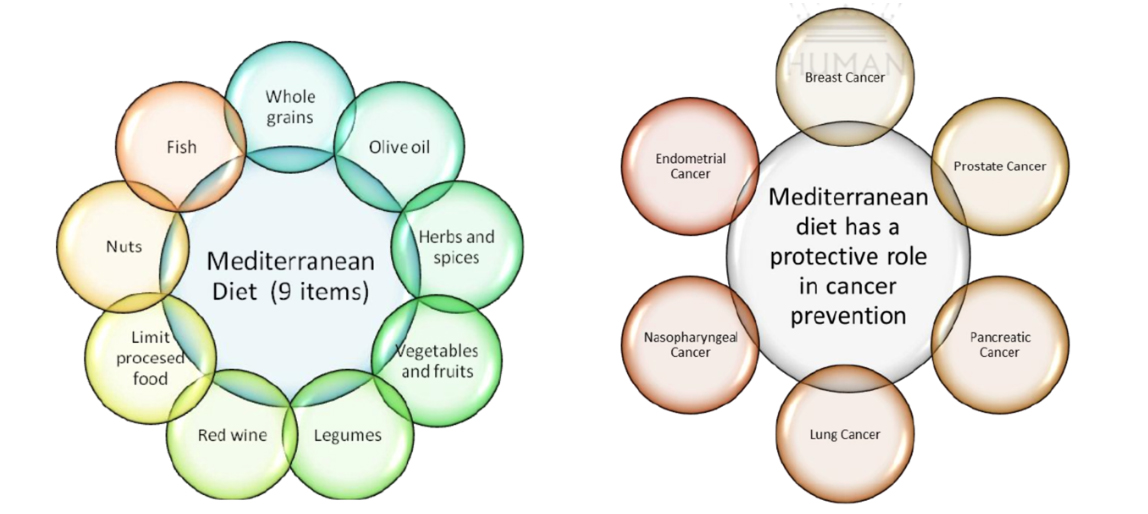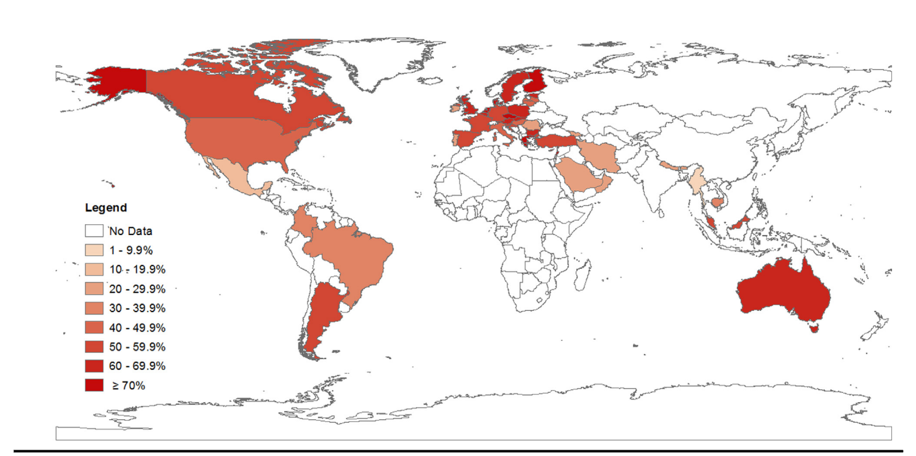Ice cream, soft drinks, beer… The arrival of warm weather and summer break causes our diets to change. Warm weather encourages us to consume foods and beverages with a high calorie content and questionable nutritional value.
Recently, the Spanish Society of Endocrinology and Nutrition (SEEN) recommended ten healthy eating habits for summer, including hydration, following a Mediterranean diet pattern, consuming seasonal fruits and vegetables and increasing physical activity. Wellness begins with self-care, and what better way than by monitoring our diet now that summer has arrived.
Tania Mesa – Director of Neolife’s Nutrition and Nursing Unit
Alejandro Monzó- Neolife Nutrition and Nursing Unit
The Mediterranean diet pattern offers important health benefits
Our bad dietary habits tend to multiply this time of year. Irregular schedules, eating at odd hours, binge eating, impulse eating, ice cream, increased alcoholic consumption, low physical activity… The combination of having more free time and the arrival of good weather can lead us towards habits that can harm our health and/or hinder the achievement of our goals.
A recent study looked at seasonal variation in terms of intake of food and energy intake in Spanish adults over the age of 55. Dietary assessment was measured through dietary reminders, and energy and nutrients intake was calculated using the well-known DIAL nutritional software. The results showed that the total individual intake of energy changed depending on the time of year and that the quality of the diet could be adversely affected (1).
Therefore, SEEN recommends that our diet should vary depending on time of year, following the patterns of the Mediterranean diet and ensuring the consumption of seasonal products.
It has been shown that the composition of seasonal foods, especially fruits and vegetables, appears to be different when it comes to vitamins and minerals. Experts say factors such as climate, growing conditions, ripening status and the amount of time food remains in storage can modify its nutritional composition (2).
The Mediterranean diet has been shown to be one of the healthiest eating patterns and offers important benefits for our health (3). It is defined as being characterized by a diet rich in fruits, vegetables, unrefined olive oil, legumes, whole grains, a preferably high consumption of fish and low consumption of meat and dairy products.
According to a recent review, published in the journal International Journal of Science and Research Methodology, the protective effect of this dietary pattern is based on the abundance of plant foods, making turning the Mediterranean diet one that is rich in antioxidants, which can be involved in neutralizing free radicals and preventing DNA damage (4). In addition, a meta-analysis was published in the journal Nutrients in which individuals with a high adherence to the Mediterranean diet have a healthier fat intake profile as is the case of extra virgin olive oil. It has generally been observed that the Mediterranean diet has a protective association against the development of cancer, especially breast and digestive neoplasms (Figure 1.), as well as being an optimal diet to increase the longevity and the prevention of chronic diseases (4,5,6).

Furthermore, staying well hydrated during the summer is essential as high temperatures demand it. Water, in addition to being indispensable for life, is the largest component of the human body (between 65 and 70% of body weight). According to a recent review published in the Journal of Athletic Training, being well hydrated is associated with an proper state of health and wellness. The main consequences of inadequate hydration are physical (weight loss, constipation, increased risk of falls, kidney failure, etc.), cerebral, dermal and cognitive and psychological performance (memory loss, difficulty concentrating, etc.) (7). Therefore, proper hydration is important, especially during the summertime.
Also, summer is an ideal time in which we find ourselves more likely to engage in different physical activities and enjoy them. We have to take advantage of that free time to move around and not stay on the couch. A new study published in the American Journal of Preventive Medicine analyzed the impact of remaining seated for a long time on people’s mortality, and it is known to be a risk factor for death from any cause (8). Spending more than 3 hours a day sitting is responsible for 4% of annual deaths from different causes (Figure 2). Our body calls for movement, and current data from the World Health Organization (WHO) shows that remaining sedentary is one of the main risk factors for mortality globally and of cardiovascular disease, cancer and diabetes (9).

At Neolife, what we want to convey is that the arrival of summer means we have to take these recommendations into account. In addition, after the summer and vacation, we ought to continue to maintain a balanced diet and healthy living habits to maintain adequate physical condition that allows us to normally resume our regular work schedule and routines.
Below are different nutritional recommendations for this wonderful time of year, to enjoy eating, physical activity, and healthy lifestyle habits in general as a family:
- Stay hydrated: always carry a bottle of fresh water with you and enjoy cold and homemade infusions, lemonades and unsweetened drinks.
- Set a meal schedule, as hearty meals cause us to skip the next meal, causing us to overeat.
- Eat seasonal summer fruit and vegetables. At this time we find an abundance of these foods, which, in addition to helping us stay hydrated, are very low in calories.
- Eliminate high calorie drinks, such as alcohol and sugary drinks, as they are unhealthy and also do not promote hydration.
- Take advantage of the summer season to make summer recipes that include cold dishes such as gazpachos, creamy soups, salads, cold soups, etc.
- Consume healthy fats, such as extra virgin olive oil, avocado, nuts and seeds or blue fish, on a daily basis.
- Watch out for industrial ice cream. They are nutritionally poor foods with large amounts of sugar and unhealthy fat, as well as containing many additives. Make homemade ice cream with natural, sugar-free ingredients.
- Increase physical activity. It is a good time of year to do exercise, taking advantage of your free time and the weather, always avoiding the midday hours with their heat and high temperatures
BIBLIOGRAPHY
(1) Aparicio-Ugarriza R. et al. (2018). “Seasonal variation and diet quality among spanish people aged over 55 years”. J Physiol Biochem. 74(1):179-188. URL: https://www.ncbi.nlm.nih.gov/pubmed/29143243
(2) (2018). “10 hábitos saludables de alimentación para el verano”. Sociedad Española de Endrocrinología y Nutrición. URL: https://www.seen.es/publico/recDieteticas.aspx?tbBuscar=jUyVfeLRiD6bPB2VVBFBuoDyCp7RFqKm5HmBPgvaAPHqlqkspSn%2FuLD59AmbNrjL
(3) Fundación Dieta Mediterránea. (2017). “¿Qué es la dieta mediterránea?”. URL: https://dietamediterranea.com/nutricion-saludable-ejercicio-fisico/
(4) Havens J. at al. (2018). “Mediterranean diet and reducing the risk of cancer: a literature review”. Ijsrm.Human, Vol. 10(1) 30-39. URL: https://www.researchgate.net/publication/326610487_Mediterranean_Diet_and_Reducing_the_Risk_of_Cancer_A_Literature_Review
(5) Schwingshackl, L. at al. (2017). “Adherence to Mediterranean Diet and Risk of Cancer: an updated systematic review and meta-analysis”. Nutrients, 9, 1-24. URL: https://www.ncbi.nlm.nih.gov/pubmed/28954418
(6) Galbete C. at al. (2018). “Evaluating mediterranean diet and risk of chronic disease in cohort studies: an umbrella review of meta-analyses”. European Journal of Epidemiology, 33(10):909–931.URL: https://www.ncbi.nlm.nih.gov/pmc/articles/PMC6153506/
(7) McDermott P.B. (2017). “National athletic trainers association position statement: fluid replacement for the physically active”. J Athl Train. 52(9):877-995. URL: https://www.ncbi.nlm.nih.gov/pmc/articles/PMC5634236/
(8) Fórnias Machado de Rezende, L. at al. (2016). “All-cause mortality attributable to sitting time: analysis of 54 countries worldwide”. AJPM, 51(2):253-263. URL: https://www.ajpmonline.org/article/S0749-3797%2816%2900048-9/abstract
(9) (2018). “Physical activity”. URL: https://www.who.int/news-room/fact-sheets/detail/physical-activity
